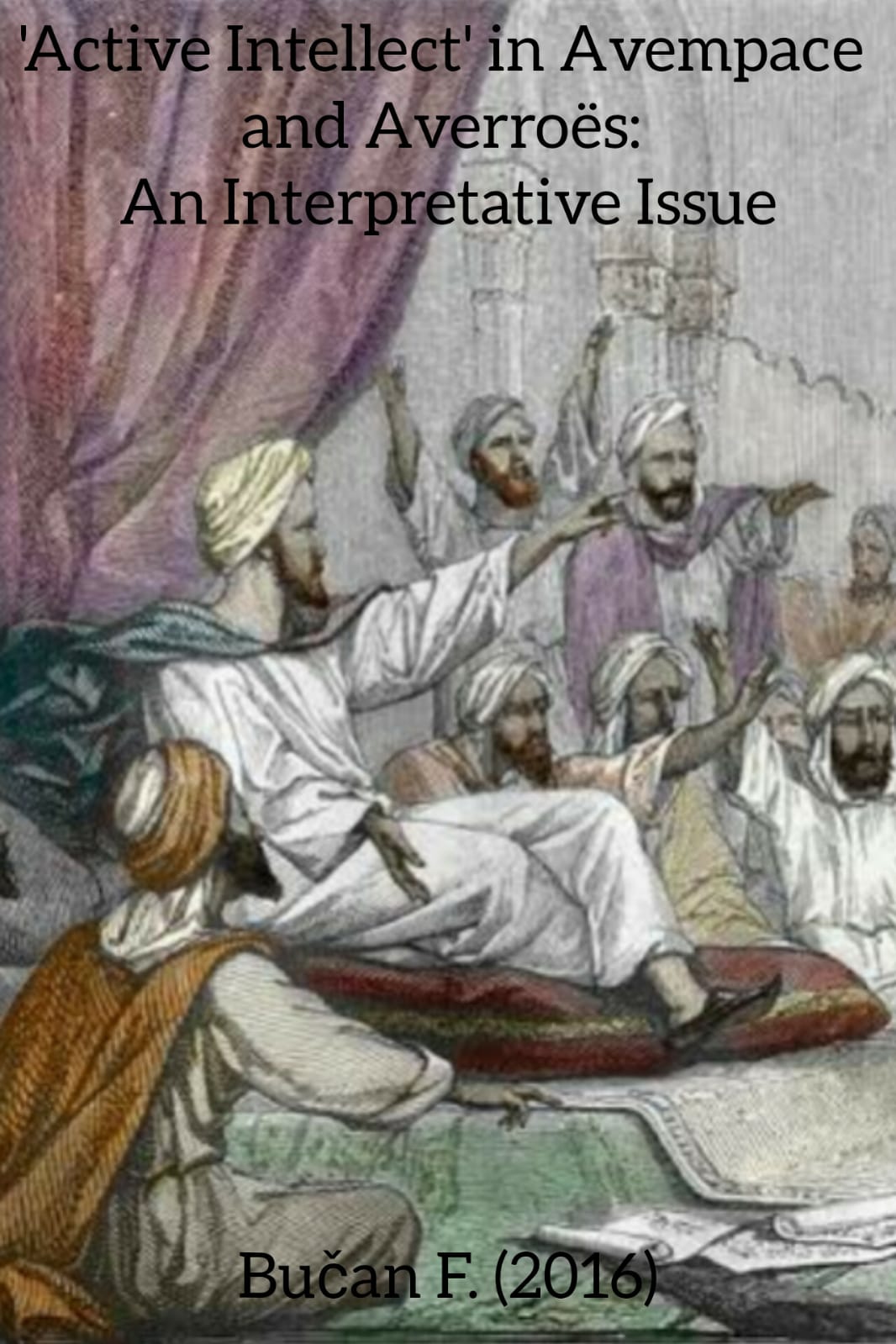‘Active Intellect’ in Avempace and Averroës: An Interpretative Issue
 Title: ‘Active Intellect’ in Avempace and Averroës: An Interpretative Issue
Title: ‘Active Intellect’ in Avempace and Averroës: An Interpretative IssuePublished by: SYNTHESIS PHILOSOPHICA
Release Date: 2016
Genre: Filsafat
This essay is about the understanding of the notion of active intellect in Ibn Bāǧǧa (Avempace) and Ibn Rušd (Averroës). The traditional interpretation of both Avempace’s and Averroës’ concept of active intellect is that they both understand it as the lowest celestial intelligence which is dator formarum, and that man thinks and cognizes intelligibles only by “connecting” with it in a quasi-mystic way; cognition being the active intellect’s granting ideas (formae or concepts) to man’s intellect. The author believes that both in Avempace’s and Averroës’ theory of cognition the notion of active intellect is only the highest function of human intellect, not a celestial entity. Based on such a presumption, as well as on the analysis of his theory, Avempace’s notion of iṭṭiṣāl bi-‘aql fa“āl is interpreted not as a kind of mystic “conjunction” or “union” with a separate celestial entity, but as reaching the highest level of man’s intellect function in the continuity of the process of thinking. The same goes for Averroës’ theory, which is quite clearly presented in his Epistle on the Possibility of Conjunction with the Active Intellect, where one can find practically direct confirmation for such an interpretation, because Averroës says that “conjunction with it [i.e. active intellect] seems to resemble more the conjunction of form in matter than it does the conjunction of agent with effect. The well-known difference between agent and effect is that the agent is external, but here there is no external agent”, or that active intellect “conjoins with us from the outset by conjunction of in-existence”. The author concludes that the issue of the active intellect in Islamic philosophy is not disambiguous – for different thinkers it was a different concept – only the function of the active intellect is always one and the same: producing ideas.
Keywords: cognition, intellect, hylic intellect, intellect in actu, active intellect
